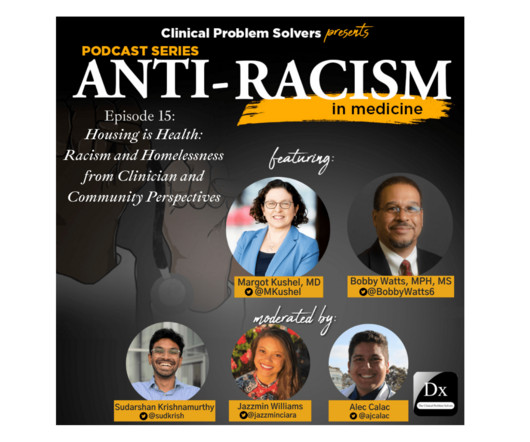Gathering Family Perspectives on Integrated Care
Integrated Care News by CFHA
MARCH 12, 2025
These excerpts also emphasize the interconnection between those functions and the role of integrated care in removing the stigma associated with mental health and strengthening the patient-provider relationship. So, any concerns that I may have that are mental health but may also be medical, they were able to piggyback.












Let's personalize your content